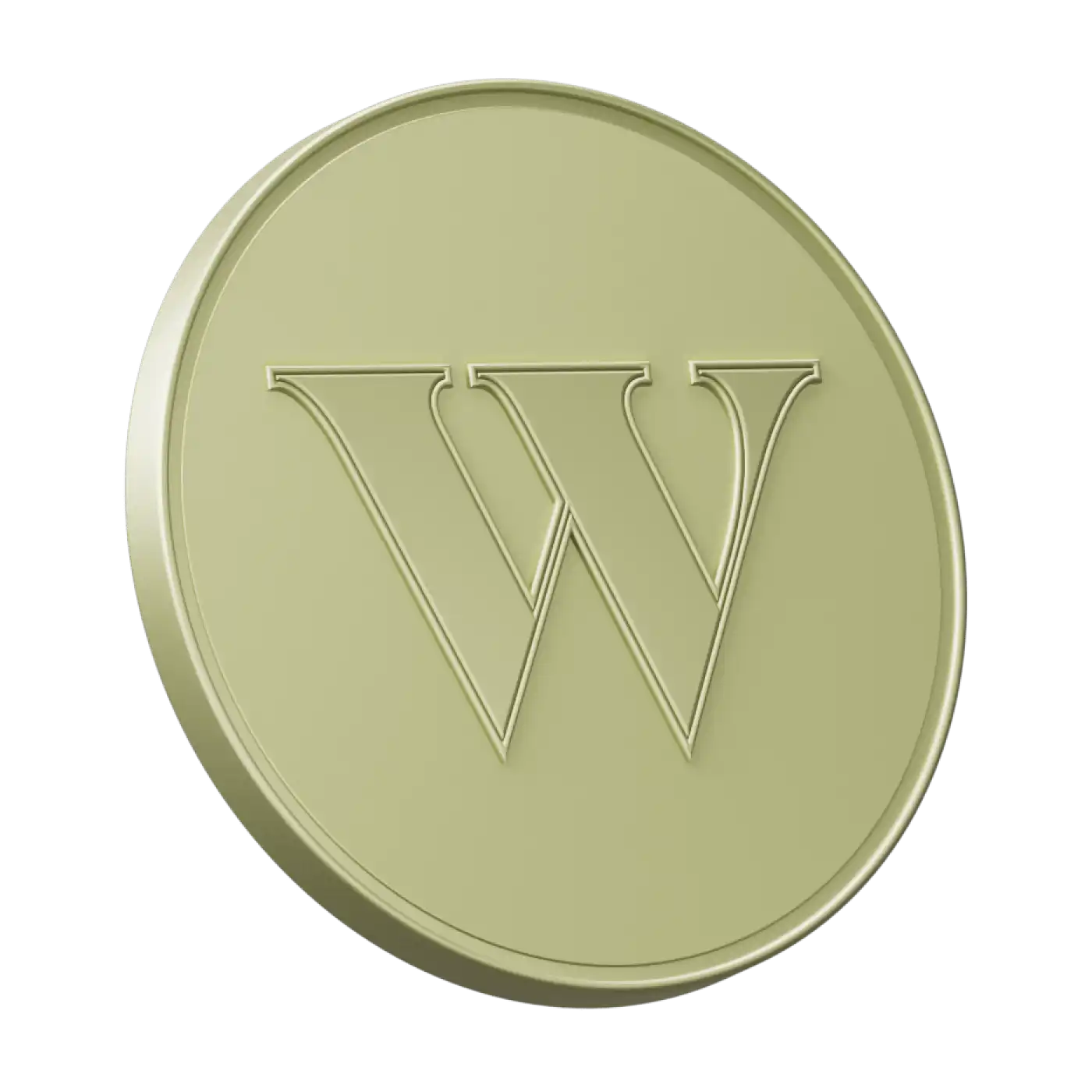There are many ways to save money: putting cash in a safe or setting aside a portion of your chequing balance as "savings." But it's crucial to put savings in an account created specifically for that purpose. It can be a safer place for an emergency fund or other short-term goals, and it may earn a bit of interest.
You can open a traditional savings account, or you can open a hybrid type of account, which combines features of a chequing and savings account.
That sounds a bit boring, right? Well, it is boring. But in personal finance, the basics can support bigger goals, like improving flexibility in your budget and working towards long-term financial independence.
What saving a little money and keeping it handy allows you to do in the long term — like have more fun and provide for your family — isn't boring at all.
In this guide, we'll walk through everything from setting your first savings goal to automating your savings, cutting costs you won't miss, and building habits that stick for life.
How to save money
To save money, start by automating transfers to a savings account on payday, tracking your spending to identify waste, and cutting recurring costs like unused subscriptions. These three foundational steps can be helpful at many income levels and may lead to quick improvements.
Here are practical tactics you can try:
Take advantage of free options: Look up free events in your area, visit museums on free days, use your local library, and join clubs that host free events.
Save your spare change: Use apps that automatically redirect small amounts to savings or investment accounts, and use tools that help you find and cancel forgotten subscriptions.
Use public transportation: Those $10 ride-share trips add up quickly. Walk, cycle, or take public transport when you can.
Maximize employer benefits: If your company matches retirement contributions, you're getting free money. Consider taking advantage of the match if it fits your budget.
Bank your tax refund: If you get money back from the government, put it straight into savings rather than spending it.
Travel during off-peak season: Set up flight price alerts, book in advance, and avoid peak travel dates to save significantly.
Consider house swaps or rentals: Hotels are expensive, especially for families. Use house-sharing platforms or apartment rentals instead.
Do it yourself: Laundry services and tradespeople can add up. If it's safe and realistic, buy the supplies and do simple tasks yourself.
Submit work expenses: If your employer allows you to expense costs, claim them. Take photos of receipts so you never lose them.
Start investing: For long-term goals, investing typically provides higher returns than savings accounts thanks to compounding.
Skip the luxury brands: Buy quality over labels. You don't need designer-everything to have a good wardrobe.
Reduce bottled water purchases: If tap water is safe where you live, bottled water is expensive and wasteful. Use a reusable bottle.
Use reward programmes: Grocery store rewards can add up. For example, a 5% rebate on $100 per week is about $20 per month.
Hunt for promo codes: Even wealthy people use coupons. Search for codes before checking out online.
Shop around for gas and insurance: Gas prices vary, and so do insurance quotes. Don't auto-renew without comparing.
Use the right credit card: Cards that waive foreign exchange fees (typically 2.5%) save money if you travel. Otherwise, pick one with good rewards — but only if you pay it off monthly.
Set a savings goal you can measure
Saving is easier when you know exactly what you're saving for. Instead of a vague goal like "I want to save money," try something specific: "I want to save $5,000 for a trip to Japan by next November."
When you attach a dollar sign and a deadline to your goal, you can work backward to figure out exactly how much you need to put away each month. It turns a stressful, abstract concept into a simple math problem. Plus, watching that specific fund grow is a lot more motivating than watching a generic savings account tick up.
Track your spending and find quick wins
You can't save money if you don't know where it's going. To find quick wins, you need to zoom out.
Review your chequing account statement or credit card bill from the last three months to get a big-picture sense of your habits. Then identify recurring expenses that aren't automatic subscriptions. You'll start seeing patterns, and those patterns can highlight a few practical places to cut back. (You're doing the same kind of review many people use to understand spending patterns.)
Take food, for instance. Food takes up more of your disposable income than you'd think. That expensive hemp milk you threw in your cart may have seemed like a fun purchase in the store, but staring back at you in black and white on a receipt... Well, it seems frivolous. Look for similar kinds of purchases. Buy what you really love, but steer clear of forgetful purchases.
Build a budget that won't backfire
Most people hate budgeting because they think it means they can never buy a latte again. But a good budget isn't about restriction; it's about permission. It tells you exactly how much you can spend guilt-free.
If you don't have a budget yet, keep it simple. The 50/30/20 rule is a good starting point:
50% to needs: Rent, groceries, insurance, utilities
30% to wants: Concerts, dining out, hobbies, entertainment
20% to savings and debt: Emergency fund, retirement, paying down credit cards
It's flexible enough to handle real life but structured enough to make sure you're actually saving.
Putting away too much too early can wreak havoc on your chequing account and might require you to transfer money back into your chequing account, creating a strain on your finances generally. A budget helps you find the right balance.
Save on payday with automation
The biggest barrier to saving is human nature. If you wait until the end of the month to save what's "left over," there will usually be nothing left over.
The fix is to pay yourself first. Set up an automatic transfer that moves money from your chequing account to your savings account on the morning of your payday. If you never see the money in your spending account, you won't miss it.
Most financial institutions allow you to link your chequing account with your savings account so that a certain amount of money will move into savings without you having to press a button. Many employers will allow you to split your direct deposit so that part of your cheque goes straight into savings.
Cut recurring costs you won't miss
Chances are, you have a few subscription services that you've forgotten you ever signed up for. Now is the time to cancel them. Do some digging in your bank or email account to figure out how much they are costing you.
Look for the gym membership you haven't used since January, the streaming service you only got for one show, or the premium app subscription you don't need. Decide which to keep and which to cut. At the very least, try to find a cheaper alternative or a family plan to split the cost.
Save more on food and groceries
Coffee shops are expensive, and so is eating out. If you're willing to start brewing your own coffee and practising a few basic cooking skills, you can often save a meaningful amount.
For grocery shopping specifically, follow these tactics:
Make a list and stick to it.
Skip the most expensive stores.
Buy in bulk when it makes sense.
Buy seasonal fruit and vegetables (they're often cheaper).
Swap branded for unbranded products when quality is similar.
Over time, buying only what you need or truly value can make other spending habits easier to change, too.
Lower banking, interest, and other fees
Bank fees might seem small, but they all add up. Banks may charge fees for certain activities, such as using out-of-network ATMs or falling below a minimum balance.
Be aware of the fees your bank charges and try to avoid them. Only use their ATMs and consider opening or moving your savings account to a provider that requires no account minimum balance or transfer fees. This can reduce monthly banking costs over time.
Saving money in Canada
There are savings tools available in Canada that you might not consider "savings" tools at all. The three main options are:
Registered Retirement Savings Plan (RRSP): Tax-deferred retirement savings. If you earn $60,000 and contribute $5,000, you only pay tax on $55,000 of income.
Registered Education Savings Plan (RESP): Designed specifically for your child's education with government matching contributions.
Tax-Free Savings Account (TFSA): Works like an RRSP but your money is available any time without penalty.
These accounts can be helpful because, depending on the account type, investment growth may be tax-deferred or tax-free.
How to save money fast
Sometimes you don't have time for compound interest to do its thing. If you need cash immediately — for an emergency or a sudden expense — here's what works:
Sell things you no longer use: Clothes, electronics, and furniture turn into cash quickly via online marketplaces.
Pick up immediate income: Freelance gigs or shifts in the gig economy can generate fast cash.
Try a "no-spend" week: Cut all discretionary spending to zero for 7 days. It's extreme but effective.
Ways to save money on a tight budget
Saving on a tight budget can seem counterintuitive. If you're having a hard time covering bills, it can be difficult to set aside anything at all for savings.
The key is looking at every amount — no matter how small — as meaningful. If the reason money is tight is that you've maxed out your credit cards, then work on paying down your debts. A big credit card balance can be a drain on your financial situation for years and years.
What's true for tight budgets is true for any budget. Notice that there's no dollar amount attached to any of the advice in this article. Fifty cents matters. A dollar matters. $10 matters. The point is to keep moving towards what you're saving for, a little at a time.
Top tips for saving money long-term
Long-term saving usually comes down to a few consistent habits and realistic lifestyle changes.
Get into the habit of saving
Our top tip is to get into the habit of saving. Cut your costs, look for ways you can make more money, and put away some money for savings each month — even if it's a small amount. Successful saving is a habit. Once you start, it will become second nature.
In many ways, saving money is about what you don't choose. It's almost passive. It's about doing a staycation so you can go on a better vacation later.
When you consider long-term, big-picture savings accounts like retirement savings, you're still incrementally building up an account and providing for your future needs. You're thinking small but making something big.
Avoid lifestyle creep
It's likely that you'll make more money in your 30s than you did in your 20s, and more in your 40s than in your 30s, and so on. One clever way to save money, almost without realizing it, is to try to avoid lifestyle creep where you can.
Lifestyle creep means that as soon as you start earning more money, you instantly upgrade your life — e.g., getting a better apartment, nicer clothes, a more expensive car, or an expensive watch. Suddenly all these luxury items become necessities, and you've thrown away a ton of money that could have been saved. When you get a raise, a bonus, inheritance, or an influx of money, as tempting as it might be to spend, save the money instead.
Next steps to start this week
Saving money is a marathon, not a sprint. But you can get a head start by doing three things this week:
Open a dedicated account for saving: Keep it separate from your spending money so you aren't tempted to dip into it.
Set up one automatic transfer: Even if it's $20 a paycheque, get the system running.
Pick one expense to cut: Cancel one subscription or make coffee at home for the next 5 days.
If you're ready to put your plan into motion, consider opening a savings or investment account with a provider that fits your needs and fee preferences.


